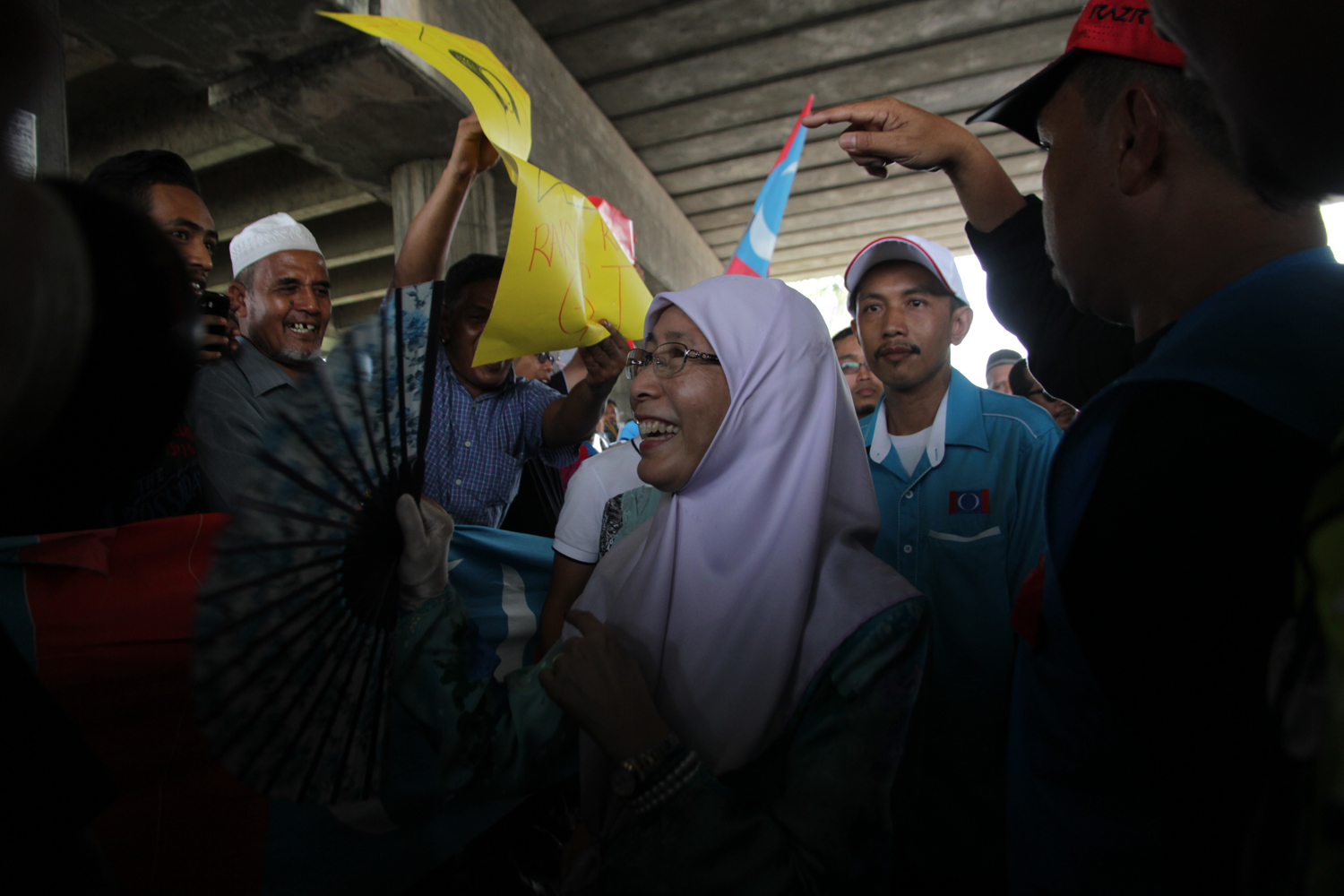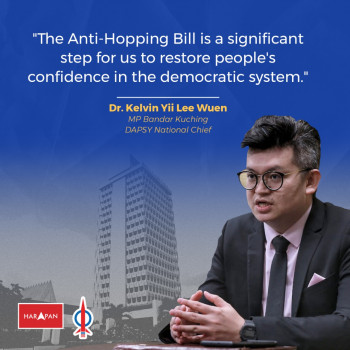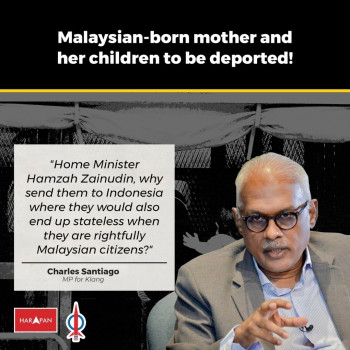By Pauline Wong
On the night of May 7, PKR president Wan Azizah Wan Ismail was a very busy woman.
Of course, being also Kajang assemblywomen, party president, as well as the newly-elected candidate for Permatang Pauh, it is to be expected that she does not have much free time.
But on that night, she rushed from venue to venue, gave two press conferences back-to-back, then was ushered to at least three different places to share her victory with the voters of Permatang Pauh.
She had been in the Yayasan Aman building near Kubang Semang in the evening, before she was rushed to the counting centre in the Institute Kemahiran Belia Negara (IKBN) at Bukit Mertajam, where she gave two press conferences back to back. After that, she rushed to Kubang Semang for a quick ceramah, and then to Seberang Jaya for another.
The roads were clogged with people who tried to wrangle through the narrow roads — Kubang Semang is a small area, with two-lane roads — and supporters on motorcycles who carried the blue PKR ‘eye’ flag for miles all over Permatang Pauh, deep into the wee hours of the morning, honking as they went.
The sense of victory was palpable, but unlike previous wins, this one seemed to be tinged with relief.
Perhaps it was due to rumours that she stood to lose Permatang Pauh, a seat her husband Anwar Ibrahim held from 1982 until 1998, then herself from 1999 to 2007.
More likely, however, it is because PKR and Pakatan Rakyat has not made the leaps forward it needed to since Anwar was jailed in February.
The victory in Permatang Pauh was not a PKR victory so much as it was a BN loss, and while it makes no difference to who represents the seat in Parliament in the end, it makes a difference to the new, young voters who have yet to make up their minds.
During the previous general elections in 2013, some 2.6 million Malaysians registered to cast their ballots for the first time, making up roughly a fifth of Malaysia’s 13.3 million eligible voters. Of that, according to pollster Merdeka Centre, a large majority are aged 40 and below, and are working adults struggling with the cost of living.
The polls centre, in its survey done between November and December 2012, found that it would be a closer fight than previously thought, although political pundits at the time had predicted that PR would sweep all of the young, new voters into their camp.
This is in line with the results of GE13, which showed that PR managed to capture a large portion of urban voters, even winning popular vote over BN, and completely taking over two of the most urban states in Malaysia: Selangor and Penang.
However, in the next general elections, the same cannot be expected, and PR’s urban monopoly cannot be taken for granted.
PR as a whole is still struggling to understand that there are large swathes of voters in urban areas who are awakening and maturing in their political understanding.
These voters no longer want ‘anyone other than BN’, they want a viable alternative to BN. This means that PKR, and PR, can no longer rely on the folly of Prime Minister Najib Abdul Razak and the Goods and Services Tax to stir anger against the BN.
PR needs to take that anger and channel it towards votes for it, which is something that has still failed to happen.
In Permatang Pauh, a senior journalist covering the by-election remarked that in the first time since he’s started being a journalist, there were more posters of Najib put up by PKR supporters than BN supporters.
All over Permatang Pauh, these posters talked about the burden that is the GST, which Najib’s administration has imposed since April.
Yet Wan Azizah found her victory marred by the fact that she had won by an 8,000-odd majority, which is some 3,000 less than the majority Anwar received in 2013. One could say that voter turnout was 15% lower, too, but PKR saw a dip in popular vote compared to 2013.
So, despite public anger towards GST, there was no drastic ‘swing’ of voters to PKR, which means that overall, very few of those who voted for BN in 2013 ‘switched’ to PKR in 2015.
People are angry at BN, but they are yet to be entirely convinced that PR has better to offer.
To break out of this stalemate, PR needs to push to prominence its younger, less politically-pedigreed candidates. It needs to hunker down and draw up a viable manifesto that does not consist solely of ‘don’t do what BN did.’
Wan Azizah, it seems, will stay very, very busy until the next GE, because if she is to be named as opposition leader, she needs to take the coalition beyond where her husband has led it.
– The Rocket




